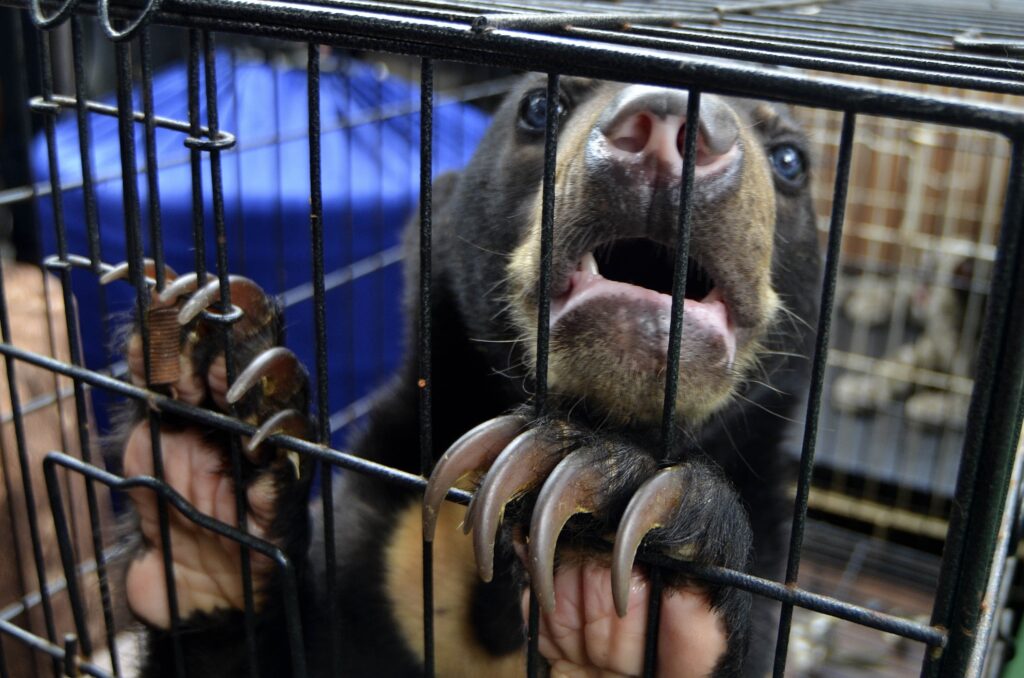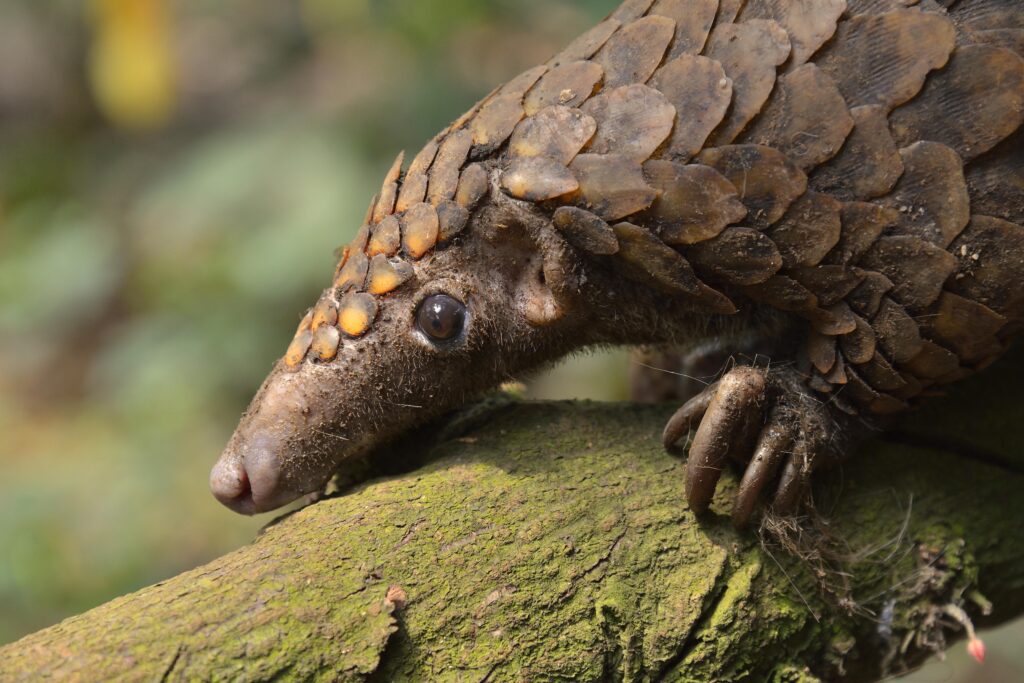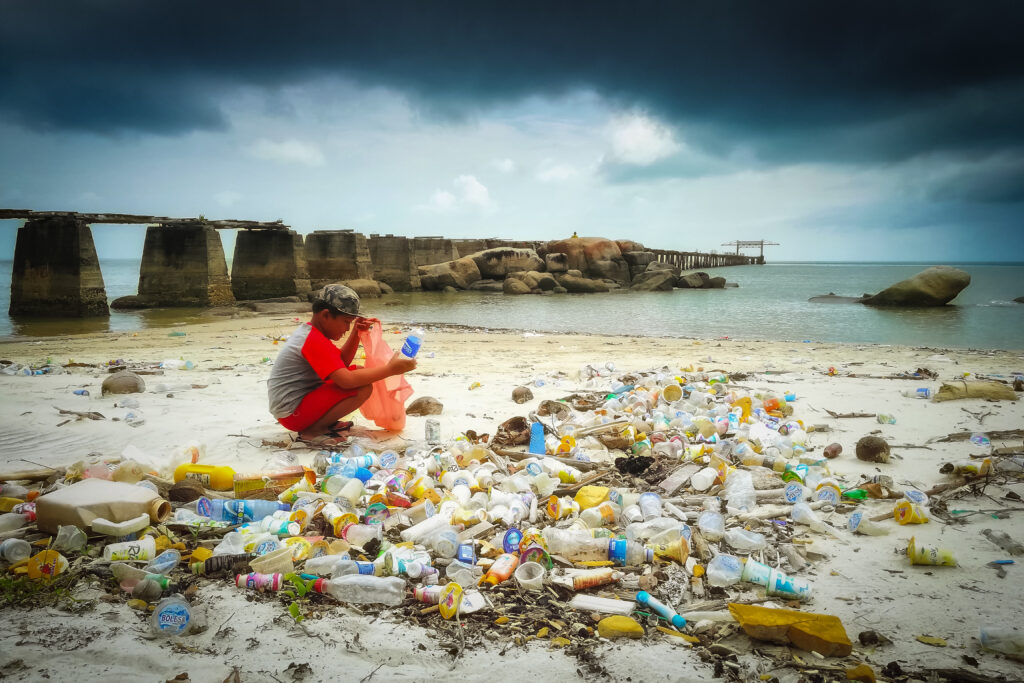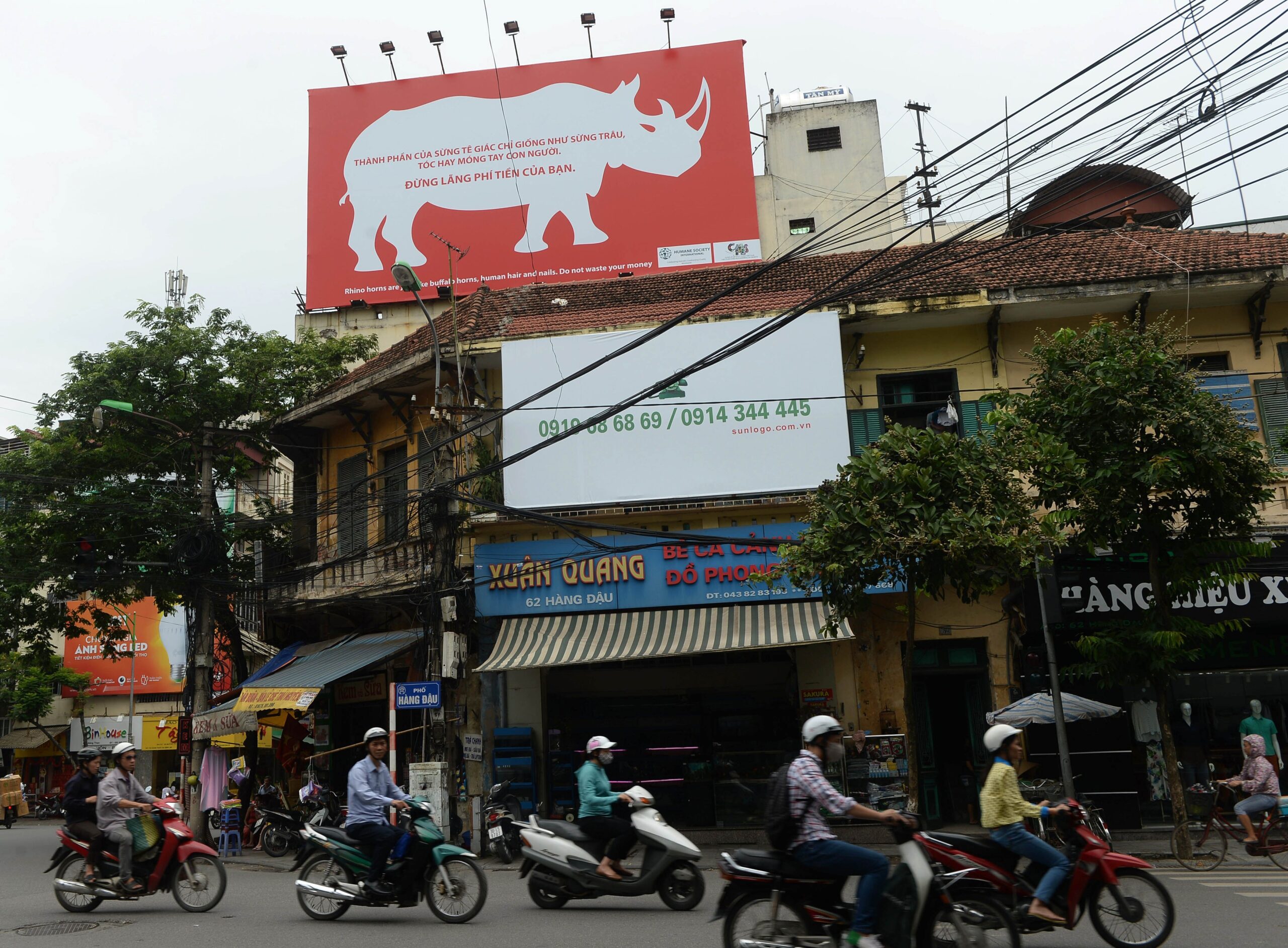
The Power of Civil Society
A poster atop a building in downtown Hanoi, Vietnam. Photo Credit: HOANG DINH NAM/AFP via Getty Images
What is Civil Society?
Civil society organisations (CSO) – including schools and universities, advocacy groups, professional associations, churches, and cultural institutions – play an essential role in addressing IWT.
CSOs provide much-needed services, resources, and expertise where government’s resources or political will are lacking. CSOs also link communities to public institutions, providing a platform for communication, knowledge-building, monitoring, and advocacy among citizens, law enforcement, environmental agencies and policymakers.
Watch below for more information on GI-TOC‘s ‘War on Rhino Poaching’.
‘Ten years ago there was no emphasis on wildlife trafficking…today, there is clearly an emphasis. There’s international pressure externally…and there is also pressure from within…’
Indonesia Stakeholder Interview, 2021
Raising Public Awareness
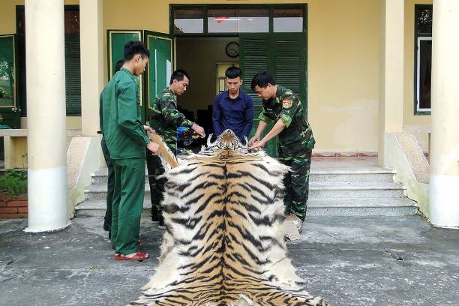
Local and international nongovernmental organizations (NGO) in Indonesia and Vietnam have successfully created public awareness and engagement campaigns that encourage civic participation in counter-environmental trafficking.
In doing so they have helped bring wildlife trafficking closer to the forefront of environmental issues. In some cases, CSO’s initiatives go beyond awareness raising and dialogue, and indeed encompass hands-on training.
Vietnamese Border Patrol officials holding a confiscated tiger skin and bones while the suspect Pham Van Hiep (second from right) looks on at a Border Guard station in northern Vietnam’s Quang Ninh province. Photo Credit: AFP via Getty Images
CSOs Working in Vietnam and Indonesia

Save Vietnam’s Wildlife, operates an anti poaching unit in the Pu Mat National Park. The anti poaching unit is responsible for organizing collaborative workshops to train forest rangers and police. As well as utilizing the Spatial Monitoring and Reporting Tool technology to help track wildlife, patrol routes and analyse historical data on illegal activites.

ENV developed, and operates, a toll-free National Wildlife Crime Hotline with the aim of providing the public with a means to report suspected trafficking and create public awareness and mobilization campaigns. ENV also established the Wildlife Crime Unit to support and strengthen law enforcement in wildlife protection. ENV has also established a policy and legislation program that works to close legal loopholes and advocate effective government policy.

TRAFFIC, an NGO, supports governments working to address wildlife trade in the context of both biodiversity conservation (flora and fauna) and sustainable development. They work in Vietnam and Indonesia and focus on addressing not only law enforcement, but also consumer behaviors.
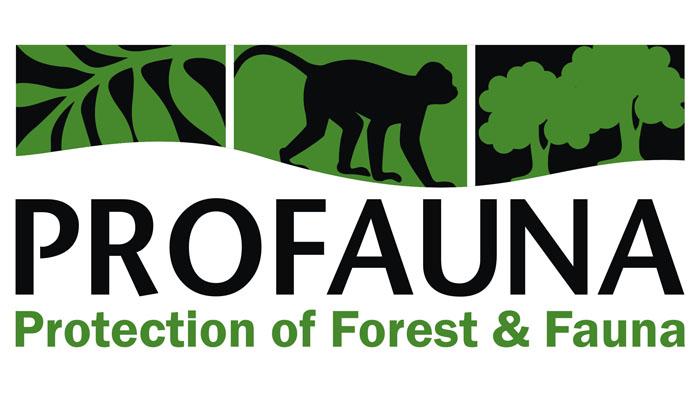
PROFAUNA Indonesia is an independent, non-profit organisation working throughout Indonesia. PROFAUNA focuses on protecting forests and wildlife. Their focus is on addressing three main issues: 1) wildlife hunting and poaching, 2) sea turtle and marine life conservation, and 3) forest conservation. PROFAUNA works by engaging civil society through education and art campaigns, as well as with local communities to support traditional practices and nature conservation.
Target Campaigns
Educational campaigns should be designed to ensure a multi-faceted approach. The demographics of people who consume illicit products are diverse and policies aiming to reduce consumption must match this diversity.
Illegally trafficked products can also benefit from targeted campaigns, as each product presents individual difficulties and special circumstances surrounding their consumption.
Hotlines
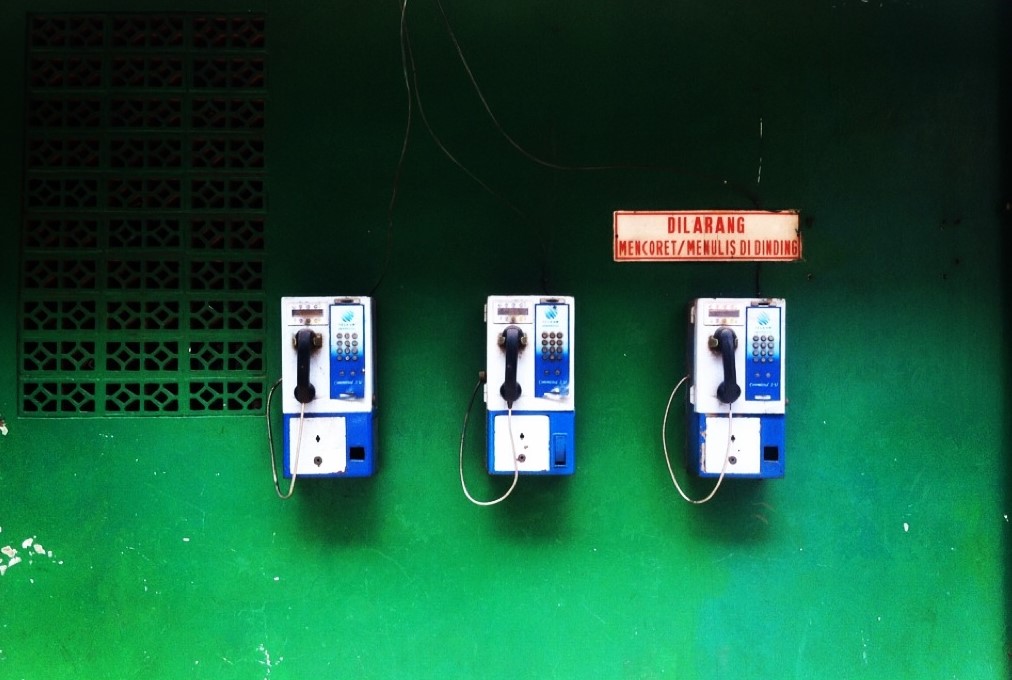
Implement a standardized intake method to allow for hotlines to be replicated across a wider range of CSOs. Through this centralized approach hotlines would become more effective in building a detailed and coherent picture of trafficking trends. Hotlines should also be multilingual to be accessible to local communities and tourists alike.
Blue Pay Phone On Green Wall. Photo Credit Muchlis Akbar / EyeEm via Getty Images
Youth Engagement
Young people are less likely than older generations to consume illicit wildlife/environmental products. This can be attributed to their exposure to the internet, experiences studying abroad, and the more affluent times they currently live in. Using social media and technological mediums such as television commercials to reach teenagers is impactful as it normalizes discussing IWT openly with parents and other elder figures.
‘I’ve seen since 2008 a massive boom in interests [about wildlife] at all different levels…undergraduate and PhDs…’
Indonesia Stakeholder Interview, 2021
Partnering with academic institutions and grade schools, business and government agencies to create jobs and educational programmes in the areas of environmental conservation can further inspire youth involvement overtime. Creating an informative foundation to stand on allows youth to be in a better position to advocate for a cause, especially through social media.
